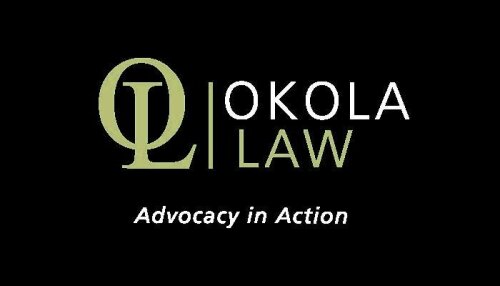Best Pension Lawyers in Toronto
Share your needs with us, get contacted by law firms.
Free. Takes 2 min.
List of the best lawyers in Toronto, Canada
About Pension Law in Toronto, Canada:
Pension law in Toronto, Canada governs the rights and obligations related to pensions, retirement savings, and benefits for employees. These laws are designed to protect the interests of workers and ensure they receive fair treatment when it comes to their retirement savings.
Why You May Need a Lawyer:
You may need a lawyer in matters related to pension law if you are facing issues such as denial of pension benefits, disputes over pension plan terms, pension plan administration issues, pension plan changes, or if you need help navigating complex pension regulations.
Local Laws Overview:
In Toronto, Canada, pension laws are primarily governed by federal and provincial legislation, including the Canada Pension Plan and the Ontario Pension Benefits Act. These laws regulate various aspects of pension plans, such as funding requirements, plan administration, and employees' rights to receive pension benefits.
Frequently Asked Questions:
1. What is the Canada Pension Plan (CPP)?
The CPP is a social insurance program that provides retirement, disability, and survivor benefits to eligible contributors and their families.
2. What is the Ontario Pension Benefits Act?
The Ontario Pension Benefits Act sets out the rules for establishing and administering pension plans in the province of Ontario. It also outlines the rights and protections of plan members.
3. Can I dispute a decision related to my pension benefits?
Yes, you can dispute a decision regarding your pension benefits by filing an appeal or seeking legal assistance to challenge the decision.
4. What are my rights as a pension plan member?
As a pension plan member, you have the right to receive accurate information about your plan, participate in plan decisions, and receive your entitled benefits.
5. Can my employer change the terms of my pension plan?
Employers may change the terms of a pension plan, but they must follow certain legal requirements and give notice to plan members before implementing any changes.
6. How can I ensure my pension plan is compliant with the law?
You can seek legal advice from a pension lawyer to ensure your pension plan complies with all relevant laws and regulations.
7. What are the options if my pension plan is underfunded?
If your pension plan is underfunded, you may have recourse options such as negotiating with your employer, seeking legal action, or filing a complaint with the appropriate regulatory body.
8. What happens to my pension benefits if I change jobs?
Depending on the terms of your pension plan, you may be able to transfer your pension benefits to a new plan or leave them with your former employer's plan until retirement.
9. Can I access my pension benefits before retirement age?
In certain circumstances, you may be able to access your pension benefits before retirement age, but there are usually restrictions and tax implications associated with early withdrawals.
10. How can a pension lawyer help me with my pension-related issues?
A pension lawyer can provide legal advice, represent you in negotiations or disputes, review your pension plan documents, and ensure your rights are protected under pension laws.
Additional Resources:
For more information on pension laws in Toronto, Canada, you can visit the Ontario Ministry of Finance website, the Financial Services Regulatory Authority of Ontario (FSRA), or consult with a local legal aid clinic.
Next Steps:
If you need legal assistance with pension-related issues in Toronto, Canada, consider reaching out to a qualified pension lawyer who can provide you with personalized advice and representation based on your specific circumstances.
Lawzana helps you find the best lawyers and law firms in Toronto through a curated and pre-screened list of qualified legal professionals. Our platform offers rankings and detailed profiles of attorneys and law firms, allowing you to compare based on practice areas, including Pension, experience, and client feedback.
Each profile includes a description of the firm's areas of practice, client reviews, team members and partners, year of establishment, spoken languages, office locations, contact information, social media presence, and any published articles or resources. Most firms on our platform speak English and are experienced in both local and international legal matters.
Get a quote from top-rated law firms in Toronto, Canada — quickly, securely, and without unnecessary hassle.
Disclaimer:
The information provided on this page is for general informational purposes only and does not constitute legal advice. While we strive to ensure the accuracy and relevance of the content, legal information may change over time, and interpretations of the law can vary. You should always consult with a qualified legal professional for advice specific to your situation.
We disclaim all liability for actions taken or not taken based on the content of this page. If you believe any information is incorrect or outdated, please contact us, and we will review and update it where appropriate.
















